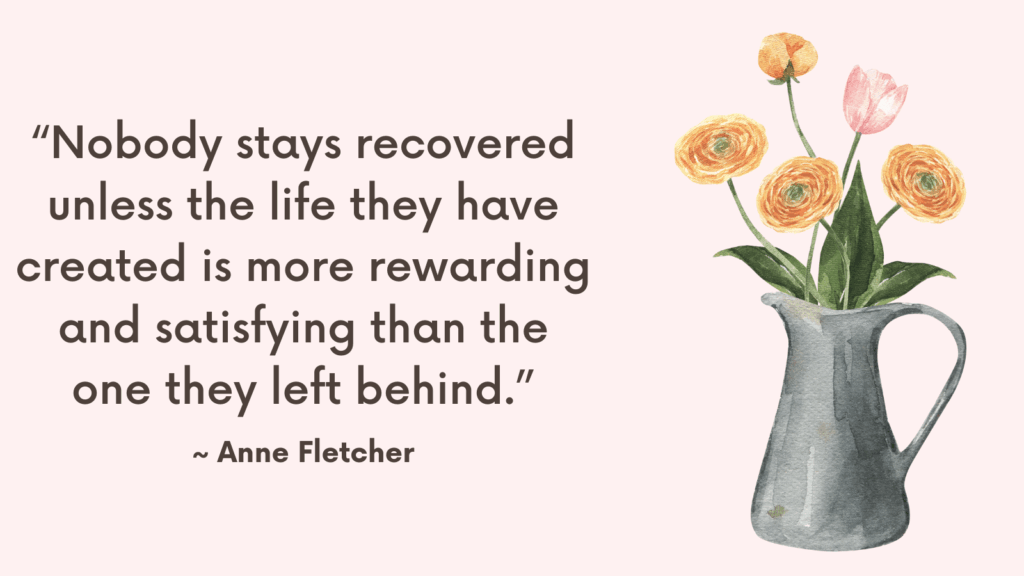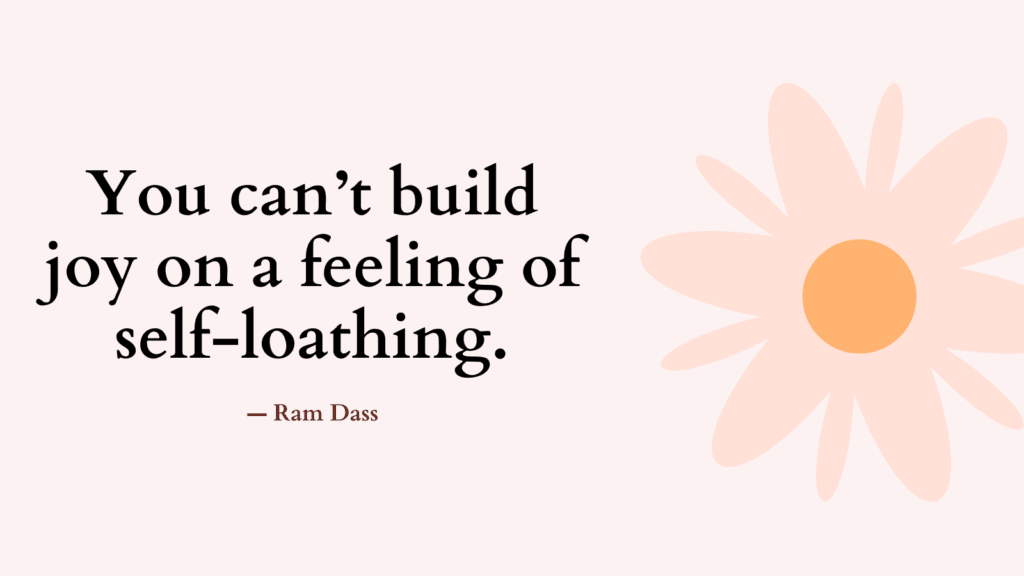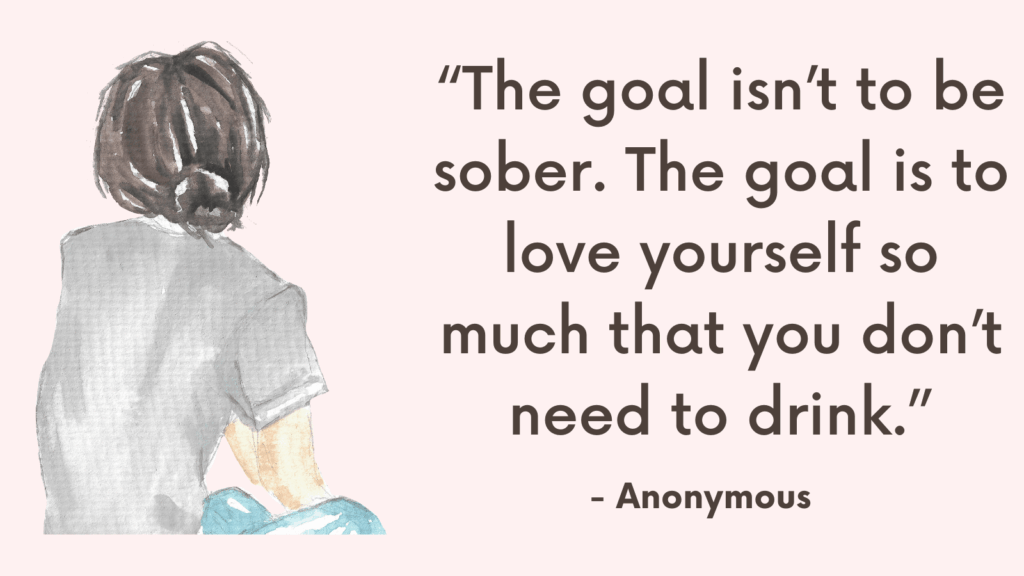This post contains signs of an addict relapsing.
Signs of an Addict Relapsing
Recognizing the signs of a potential relapse is crucial in order to intervene and prevent a full-blown return to addictive behavior.
However, it’s important to note that relapse is a complex issue and each individual may exhibit different signs.
These suggestions should be used as a general guide.
1. Emotional instability
A relapsing addict may experience sudden mood swings, irritability, anger, or become easily frustrated.
They may struggle to regulate their emotions and may display increased sensitivity or defensiveness.
2. Isolation and withdrawal
Increasing social isolation, withdrawing from family and friends, or avoiding activities and hobbies they once enjoyed can be indicative of relapse.
The person may start distancing themselves from their support network.
Related: What Is Emotional Sobriety and How to Achieve It? (+FREE Worksheets)
3. Neglecting self-care
A relapse can lead to a decline in personal hygiene, appearance, and overall self-care.
An addict who was previously attentive to their physical health and grooming may show signs of neglecting these areas.
4. Loss of interest and motivation
A relapsing addict may lose interest in activities that once brought them joy or motivated them.
They may lack enthusiasm for life and have difficulty finding pleasure in other areas.
Related: How to Break the Addiction Cycle? [Definitive Guide]
5. Reconnecting with old acquaintances
Returning to old environments or reconnecting with old friends who were associated with drug or alcohol use can be a warning sign of an impending relapse.
These individuals and settings can trigger cravings and put the person at higher risk.
6. Changes in sleep patterns
Insomnia or disturbed sleep, as well as excessive sleepiness or lethargy, can be signs of a relapse.
Sleep disturbances can be a symptom of emotional distress or an attempt to escape reality.
Related: 4 Stages of Addiction (+FREE Worksheets)
7. Increased secrecy and dishonesty
A relapsing addict may start hiding their behaviors, lying about their whereabouts, or being evasive when questioned about their activities.
They may also become defensive or confrontational when their actions are questioned.
8. Resurgence of cravings
Intense cravings for the substance of addiction may resurface as a person approaches relapse.
These cravings can be difficult to manage, and the individual may express a strong desire to use again.
9. Financial difficulties
A relapse can lead to financial strain due to the costs associated with obtaining drugs or alcohol.
The person may begin to struggle financially, borrow money frequently, or engage in illegal activities to fund their addiction.
It’s essential to be aware that these signs alone do not guarantee a relapse will occur, but they serve as red flags.
If you notice these indicators in yourself or someone else, it’s important to take action.
Encourage open communication, express concern without judgment, and offer support.
Related: How to Enjoy Being Sober? (+FREE Worksheets)
Causes and Triggers of Relapse
1. Stress
Stress is a significant contributing factor to relapse, as individuals may turn to their addiction as a coping mechanism.
Everyday stressors such as work pressure, relationship difficulties, or financial concerns can accumulate and overwhelm an individual, leading them to seek solace in their addictive behavior.
2. Emotional vulnerability
Unresolved emotional issues can create vulnerability, making individuals more susceptible to relapse.
Negative emotions such as loneliness, sadness, anger, or frustration can trigger old patterns of behavior as individuals seek relief from emotional pain.
Related: What Is Emotional Addiction & How to Overcome It
3. Complacency and overconfidence
A false sense of security can arise when individuals believe they have mastered their addiction and no longer need to be vigilant.
This complacency can lead to a lack of proactive steps towards recovery, making them more vulnerable to relapse.
4. Social environment
The people an individual surrounds themselves with play a significant role in relapse.
A social circle that promotes or engages in substance use can exert immense influence, triggering cravings and normalizing addictive behavior.
5. Internal cues
Internal cues are thoughts, feelings, and bodily sensations that act as triggers to use substances again.
For example, experiencing boredom, excitement, anxiety, or physical discomfort can activate associations with past substance use, increasing the risk of relapse.
Related: How to Help an Addict without Enabling?
6. External cues
External cues refer to environmental stimuli associated with substance use.
These cues can include specific places, people, objects, or even certain smells or sounds that trigger memories and cravings.
Being present in environments where the person previously used substances can reignite desires to use again.
7. Poor coping skills
Inadequate coping skills can leave individuals ill-equipped to deal with life stressors, emotional distress, or triggers.
Without alternative strategies to manage these challenges effectively, individuals may resort to their addiction as the only perceived solution, leading to relapse.
By identifying these causes and triggers, individuals in recovery can work on developing effective coping mechanisms, building a strong support system, implementing stress management techniques, and seeking professional help as needed.
Remember, relapse does not mean failure, but rather an opportunity to learn, grow, and strengthen one’s commitment to recovery.
Related: Best 99 Coping Skills (+FREE Coping Worksheets)
How to Prevent Relapse?
Preventing relapse is a crucial aspect of maintaining long-term recovery from addiction. Let’s explore some key strategies for preventing relapse:
1. Build a Strong Support System
Surrounding yourself with a supportive network of family, friends, or individuals in recovery is vital.
A strong support system provides encouragement, understanding, and accountability, making it easier to navigate challenges and maintain sobriety.
2. Attend Support Groups
Participating in support groups such as Alcoholics Anonymous (AA) or Narcotics Anonymous (NA) can be immensely helpful.
These groups offer a sense of community, shared experiences, and ongoing support from individuals who have faced similar challenges.
3. Develop Coping Skills
Learning healthy coping mechanisms is crucial for managing stress, emotions, and cravings without resorting to substance use.
Engaging in activities like exercise, mindfulness meditation, journaling, or pursuing hobbies can provide alternative outlets for stress relief and emotional regulation.
Related: How To Feel Your Feelings? Top 9 Difficult Emotions To Cope With In Healthy Ways
4. Identify and Avoid Triggers
Recognizing personal triggers that may lead to relapse is essential.
This might include certain people, places, social situations, or even specific thoughts and emotions.
By identifying these triggers, individuals can take proactive steps to avoid or manage them effectively.
5. Practice Self-Care
Prioritizing self-care is essential for overall well-being and relapse prevention.
Getting enough sleep, maintaining a healthy diet, engaging in regular exercise, and practicing relaxation techniques are all important aspects of self-care.
Taking care of one’s physical and mental health reduces vulnerability to relapse.
Related: Top 45 Self Care Day Ideas at Home To Kickstart Your Self Care Ritual
6. Develop a Relapse Prevention Plan
Working with a therapist or counselor, individuals can create a detailed relapse prevention plan.
This plan typically includes identifying warning signs, developing coping strategies, listing emergency contacts, establishing a daily routine, and setting achievable goals.
Regularly reviewing and updating the plan is crucial to adapt to changing circumstances.
7. Manage Co-occurring Disorders
Addressing any co-occurring mental health disorders is essential for relapse prevention.
Conditions such as depression, anxiety, or trauma can significantly impact recovery.
Seeking appropriate treatment and integrating mental health support into the recovery process is crucial.
Related: Top 10 Practical CBT Exercises For Generalized Anxiety Disorder Relief
8. Practice Mindfulness and Emotional Awareness
Developing mindfulness skills helps individuals stay present in the moment and notice their thoughts, feelings, and bodily sensations without judgment.
This awareness allows individuals to respond to cravings, triggers, and stressors in a healthier and more intentional manner.
9. Celebrate Milestones and Achievements
Recognizing and celebrating milestones and achievements along the recovery journey is important.
It reinforces progress and provides motivation and a sense of accomplishment.
Celebrations can be as simple as treating oneself to a favorite meal, engaging in a favorite hobby, or sharing accomplishments with loved ones.
Related: Best 8 Mindfulness Exercises For Adults That Will Help You Regulate Your Emotions

Conclusion
Remember, preventing relapse is an ongoing process, and setbacks may occur.
If a relapse does happen, it is important to seek support, remain compassionate towards oneself, and return to the strategies that have proven effective in the past.
Relapse is not failure; it is an opportunity for self-reflection, growth, and recommitment to recovery.



